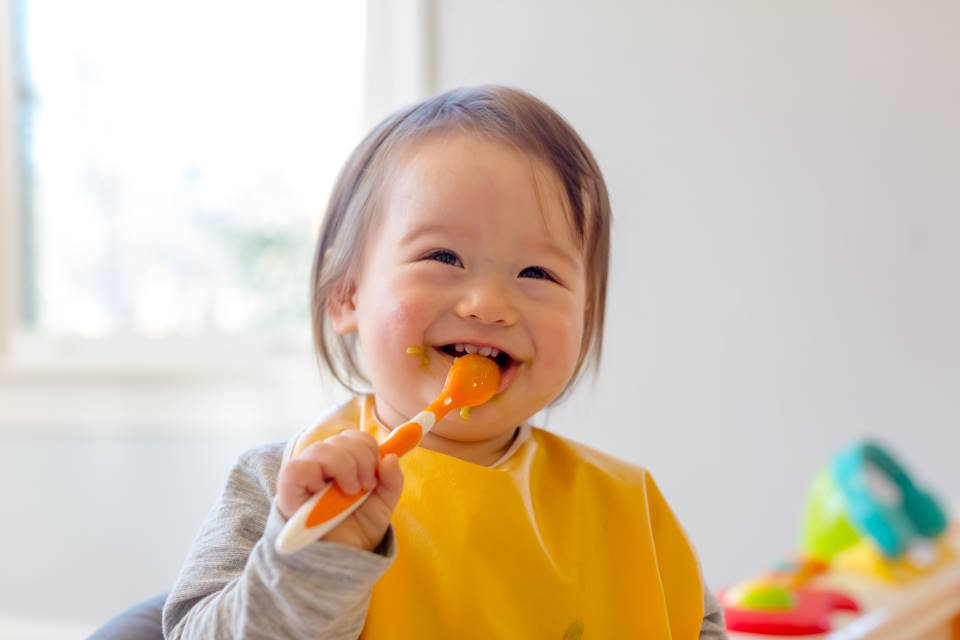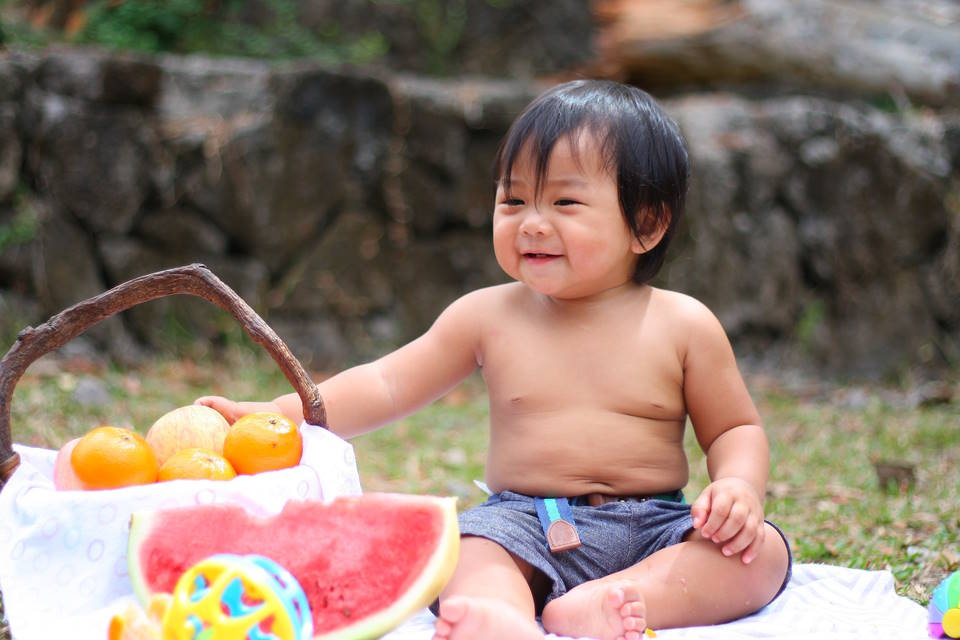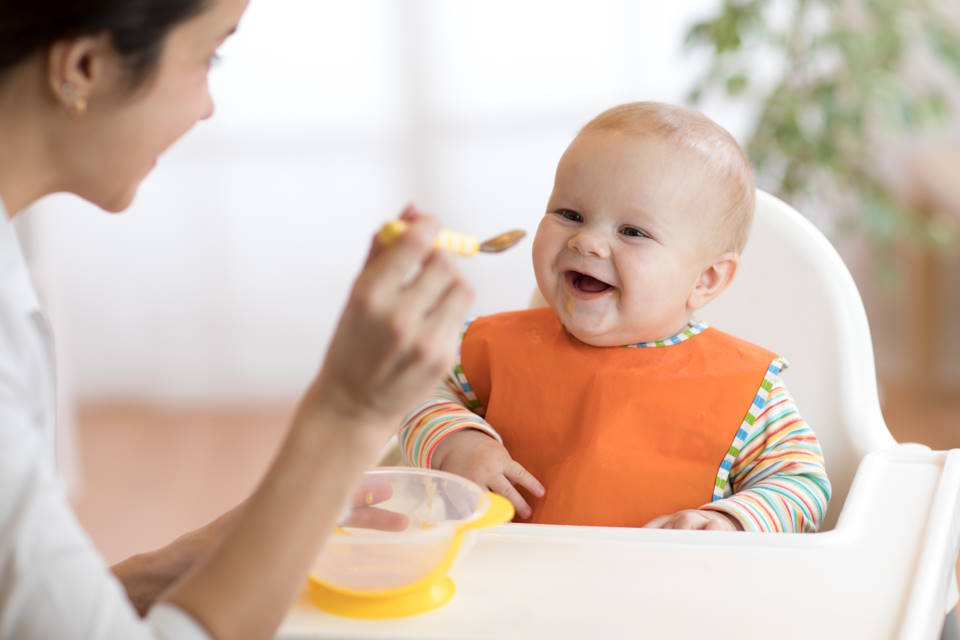As a parent, one of the joys of watching your child grow up is introducing them to new foods. But, when it comes to introducing your little one to fruits like raspberries, you may have some questions about when and how to do it safely. Raspberries are a popular fruit that are often used in recipes for babies and young children, but it’s important to know how and when to introduce them to your little one’s diet. We will address some commonly asked questions about feeding your baby raspberries, such as whether babies can eat raspberries, if they should be cooked, and whether raspberries can help with digestion. Let’s get started!
Introduction
When it comes to introducing new foods to your baby’s diet, it’s important to do your research and be aware of any potential risks. If you’re wondering whether babies can eat raspberries, the answer is yes! Raspberries are a great source of vitamins and minerals for your little one, and they have a sweet and tart flavor that many babies enjoy.
However, there are a few things to keep in mind when giving your baby raspberries. First and foremost, you should always introduce new foods one at a time, and watch for any signs of an allergic reaction. If your baby has never had raspberries before, start with a small amount and wait a few days before offering more.
- Choose fresh raspberries that are firm and plump, without any signs of mold or damage.
- Wash the raspberries thoroughly before serving, to remove any dirt or debris.
- If your baby is under one year old, you may want to remove the seeds from the raspberries before serving. You can do this by mashing the raspberries with a fork and then straining out the seeds with a fine mesh strainer.
In general, it’s a good idea to wait until your baby is at least six months old before introducing solid foods, including raspberries. Before that, breast milk or formula should be your baby’s primary source of nutrition.
When Can I Give My Baby Fresh Raspberries?
Parents might wonder when they can start introducing fresh fruits to their babies besides the traditional apples and bananas. One of the exciting fruits to add to their diet is raspberries. They are small, nutritious, and packed with antioxidants, which are essential for a baby’s growth.
So when can I give my baby fresh raspberries? It’s safe to introduce raspberries to babies when they are between the ages of 6 to 8 months old. These soft berries are easy to consume and digest for most babies, and it’s an excellent way to encourage healthy eating habits at an early age.
- However, there are a few things to keep in mind when feeding raspberries to your baby:
- Wash raspberries well before feeding them to your baby
- Remove the green leaves and stems as they may cause choking or digestive issues for the baby
- Introduce raspberries in small amounts, and watch out for any adverse reactions such as rashes, hives, or breathing difficulties
| Benefits of Raspberries for Babies |
|---|
| Raspberries are loaded with vitamins and minerals that are valuable for babies, including Vitamin C, Vitamin K, Calcium, and Magnesium, which help keep the baby’s immune system strong and healthy. |
| Raspberries are high in fiber, which assists in the development of their digestive system and helps avoid constipation. |
| These small berries are low in calories and sugars, making them an ideal snack for babies who are starting to eat solid foods. |
Can Babies Have Raspberries With Seeds?
Many parents are always excited to introduce their baby to new foods. One question that often arises is whether babies can have raspberries with seeds. Raspberries are a tasty and healthy fruit, but parents want to ensure that any new food they introduce to their baby is safe and appropriate for their age.
The answer is yes, babies can have raspberries with seeds. Raspberries are rich in fiber, vitamin C, and antioxidants, which makes them an excellent addition to your baby’s diet. The seeds in raspberries are tiny, thin, and do not pose any choking hazard to your baby.
- However, if your baby is under six months of age, it is recommended to wait until they are older to introduce them to solid foods, including raspberries.
- If your baby has started eating solid foods, ensure that the raspberries given to them are fresh and washed thoroughly.
While raspberry seeds are safe for your baby to eat, some parents prefer to remove them before feeding the fruit to their baby. You can do this by mashing raspberries with a fork and then straining out the seeds. Alternatively, you could use a fine mesh strainer to remove the seeds from the pureed fruit.
It is also important to note that raspberries, like any other fruit, should be introduced to your baby in small amounts at first to monitor any possible allergic reactions or stomach discomfort. If your baby experiences any adverse reaction after eating raspberries, such as rash, vomiting, or diarrhea, stop giving them the fruit immediately and seek medical attention.
Do I Need to Cook Raspberries for Baby?
As parents, we always want to offer the best and healthiest food to our little ones. When it comes to introducing new foods to our babies, we tend to have a lot of questions. One question that arises frequently is, “Do I need to cook raspberries for my baby?”
The good news is that you don’t necessarily have to cook raspberries for your baby. Raspberries are a soft and juicy fruit that is safe for your baby to eat in its raw form. However, it is important to wash the raspberries thoroughly before offering them to your baby.
- When introducing raspberries to your baby, make sure to serve them in small quantities.
- If you notice any signs of an allergic reaction, such as hives or difficulty breathing, stop giving your baby raspberries and consult your pediatrician immediately.
It is important to note that raspberries have seeds that may pose a choking hazard to your baby. You can either remove the seeds before serving the raspberries to your baby, or wait until your baby is old enough to chew and swallow the seeds without any issues.
| Benefits of feeding raspberries to your baby |
|---|
| Raspberries are high in vitamin C, which is essential for strengthening the immune system. |
| They are also a good source of dietary fiber, which aids in healthy digestion and prevents constipation. |
| Raspberries contain antioxidants that protect the body from damaging free radicals and reduce the risk of chronic diseases. |
Can Raspberries Upset Babies Stomach?
As a parent, it’s important to know what foods are safe for your baby to eat. Raspberries are a popular fruit known for their sweet and tart flavor, but can they upset your baby’s stomach?
The good news is that raspberries are generally safe for babies to eat. They are high in vitamin C and antioxidants, making them a nutritious snack for your little one. However, some babies may be more sensitive to the acidity in raspberries, which can cause stomach discomfort.
- If you’re introducing raspberries to your baby for the first time, start with a small amount and watch for any signs of digestive upset, such as vomiting, diarrhea, or excessive gas.
- If your baby does experience stomach discomfort after eating raspberries, try giving them a smaller portion or waiting a few days before trying again to see if their system has adjusted.
It’s also important to remove any seeds from raspberries before giving them to your baby. The seeds can be a choking hazard and may also be difficult for your baby to digest.
In general, it’s best to introduce new foods to your baby one at a time and in small portions to monitor any adverse reactions. If you have concerns about your baby’s digestion or overall health, it’s always best to consult with your pediatrician.
Do Raspberries Help Babies Poop?
As parents, we often worry about our baby’s bowel movements. It’s not just about cleaning up the diaper mess, but also ensuring that the baby is healthy and comfortable. One of the questions that parents frequently ask is – do raspberries help babies poop?
Raspberries are packed with fiber, which is essential for maintaining a healthy digestive system. In fact, one cup of raspberries contains around 8 grams of fiber, which is about one-third of the daily recommended intake for adults. But can babies benefit from this nutrient-rich fruit as well?
- When can you introduce raspberries to your baby?
According to the American Academy of Pediatrics (AAP), babies can start eating solid foods around six months of age. Raspberries can be introduced around this time, but it’s important to start with small quantities and ensure that the fruit is properly washed and mashed or pureed.
- Do raspberries need to be cooked before feeding them to your baby?
No, raspberries don’t necessarily need to be cooked before feeding them to your baby. However, some parents prefer to cook the fruit to make it easier to digest and avoid any choking hazards. If you choose to cook raspberries, it’s important to use minimal water to prevent the loss of nutrients and flavor.
- Can raspberries cause digestive issues in babies?
While raspberries are a great source of fiber, consuming too much of them can cause digestive issues like bloating, gas, or even diarrhea. It’s important to introduce raspberries to your baby gradually and in small amounts to avoid any discomfort or health issues.
So, do raspberries help babies poop? The answer is yes, but only in moderation and as part of a balanced diet. While raspberries can provide fiber and other essential nutrients, it’s important to consult with your pediatrician before introducing any new food to your baby’s diet.













